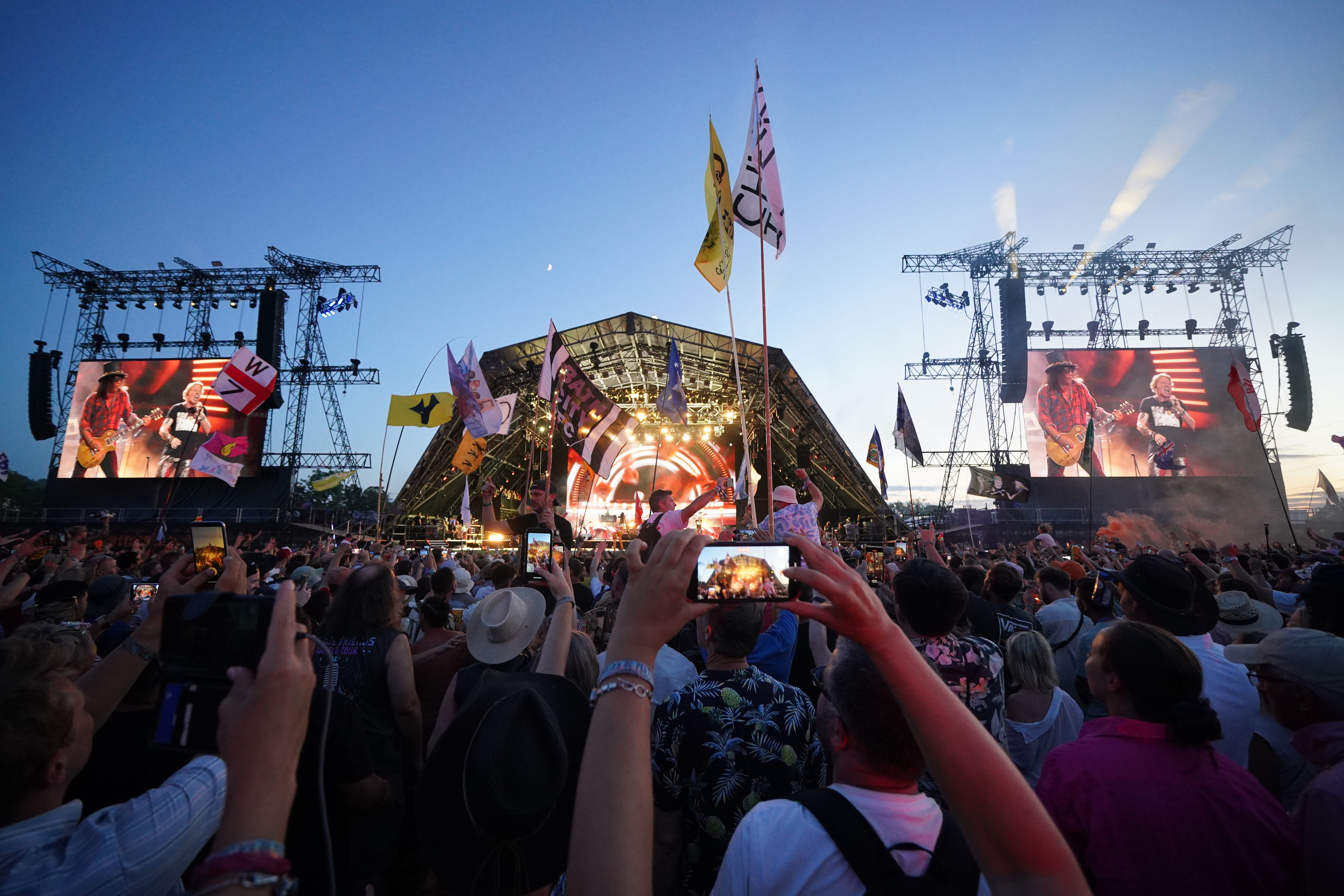Emily Eavis explains why a Glastonbury festival ticket ballot wouldn’t work
Festival co-organiser acknowledged the huge demand for tickets but pointed out other means of securing a pass to Worthy Farm
Your support helps us to tell the story
From reproductive rights to climate change to Big Tech, The Independent is on the ground when the story is developing. Whether it's investigating the financials of Elon Musk's pro-Trump PAC or producing our latest documentary, 'The A Word', which shines a light on the American women fighting for reproductive rights, we know how important it is to parse out the facts from the messaging.
At such a critical moment in US history, we need reporters on the ground. Your donation allows us to keep sending journalists to speak to both sides of the story.
The Independent is trusted by Americans across the entire political spectrum. And unlike many other quality news outlets, we choose not to lock Americans out of our reporting and analysis with paywalls. We believe quality journalism should be available to everyone, paid for by those who can afford it.
Your support makes all the difference.Emily Eavis has shut down the idea of a “Glastonbury ballot”, calling the dilemma over the demand for tickets “one of the worst sides to the job”.
The Glastonbury co-organiser, who is the daughter of festival founder Michael Eavis, opens the gates to Worthy Farm today and officially kicks off the 2024 festival, which is being headlined by Coldplay, Dua Lipa and SZA.
Speaking to the BBC in front of the Pyramid Stage at Worthy Farm, Eavis was asked about whether organisers would ever consider doing a ticket ballot, considered one of the fairest ways to allow people to apply for tickets to in-demand events.
“I think if we did a ballot, we’d end up with some people who weren’t necessarily as bothered about coming,” Eavis explained to presenter and DJ Annie Mac.
“It’s really hard to say this year because I know a lot of people didn’t get tickets and they wanted them. But you know, a lot of the time, the people who really really want them get them do through volunteering or through competitions.”
“I know it’s hard,” she continued. “It is hard. It’s one of the worst sides to the job is, there aren’t enough tickets for everybody, you know, and we can’t do anything about it and we definitely can’t do two weekends.”

Speaking again to Annie Mac with Nick Grimshaw on their BBC podcast Sidetracked, Eavis revealed that there will likely be a fallow year in 2026.
The fallow year typically takes place every five years, in order to allow the festival grounds to recover from more than 200,000 fans traversing the site over five days in June.
“I have a vague idea of who might be headlining next year, and then we might do a fallow year after that,” Eavis said.
Enjoy unlimited access to 100 million ad-free songs and podcasts with Amazon Music
Sign up now for a 4 month free trial (3 months for non-Prime members)
Enjoy unlimited access to 100 million ad-free songs and podcasts with Amazon Music
Sign up now for a 4 month free trial (3 months for non-Prime members)
“We are due a fallow year,” she continued. “The fallow year is important because it gives the land a rest, it gives the cows a chance to be out for longer and reclaim their land.
“It just gives everybody a little time to just switch off. And the public as well. Then you go away for a bit and it feels lovely when you come back.”

In the same interview, Eavis revealed who her dream headliner would be, choosing an artist known for their reticence towards live performances.
“I hope it will happen one day. I mean, Elton (John) was a pipe dream and it happened, so you never know,” Eavis said.
Glastonbury 2024 will take place between Wednesday 26 June to Sunday 30 June. You can see the latest weather updates here, and find full set times for each stage here.

Join our commenting forum
Join thought-provoking conversations, follow other Independent readers and see their replies
Comments